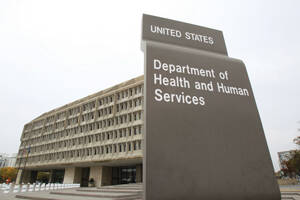A White House spokesperson said the Obama administration is working to “strike the right balance between expanding coverage of preventive services and respecting religious beliefs” as it explores the wording of a religious exemption to a mandate of the Department of Health and Human Services that future health plans must cover contraceptives and sterilizations by Jan. 1, 2013.
“This decision has not yet been made,” said Jay Carney, an administration press secretary, responding to a reporter at a White House briefing on Nov. 29, who said he had heard from “lots of Democrats” who were concerned about President Obama possibly granting an exemption to Catholic churches, hospitals and universities from the requirement that all insurance plans cover contraception.
“These Democrats, a lot of them in the abortion rights community, are concerned that this is even being discussed,” the reporter added.
Prompting the anxiety of pro-choice Democrats was a recent private meeting between Archbishop Timothy M. Dolan of New York, president of the U.S. Conference of Catholic Bishops, and President Obama on Nov. 8 at the White House. Archbishop Dolan said later that he found the president to be “very open to the sensitivities” of the U.S. Catholic Church on issues related to religious freedom. By mutual agreement with the White House, further details of the meeting were not made public.
The controversy over religious exemptions for new women’s health guidelines emerged after H.H.S. Secretary Kathleen Sebelius announced an interim rule on Aug. 1 that would require all health plans to cover contraceptives—including two abortifacients—and sterilizations without co-pays as part of an upcoming expansion of women’s services. The new regulations included an interim exemption for religious employers that various Catholic and other faith-based organizations protested was too narrow. They argued that many Catholic institutions would not be protected and would be forced to discontinue health coverage for employees or else cease offering some social services, education or health care to the general public.
A 60-day comment period on the proposed religious exemption ended on Sept. 30, and a final decision was expected from H.H.S. by the end of the year.
At least one bishop has said he would be forced to stop offering health insurance to his employees if the mandate remains unchanged. Speaking at the diocesan Red Mass at Sacred Heart Church in Tampa, Fla., on Nov. 30, Bishop Robert N. Lynch of St. Petersburg said that if government officials “fail to shift in their present positions, then 2,300 employees of the Diocese of St. Petersburg will lose their health care coverage, which they have come to treasure and rely upon.”
Bishop Lynch, whose diocese is self-insured, said he “would simply give them what we would have paid for their health care and tell them they have to look for coverage elsewhere.”
Archbishop Thomas G. Wenski of Miami addressed the issue in a column dated Nov. 29 directed to President Obama. Saying the administration was “running roughshod over conscience-protection provisions long part of the law of our land,” the archbishop added, “Regardless of one’s position on the morality of abortion, we—and elected officials on both sides of the aisle—should be concerned with these developments.”








